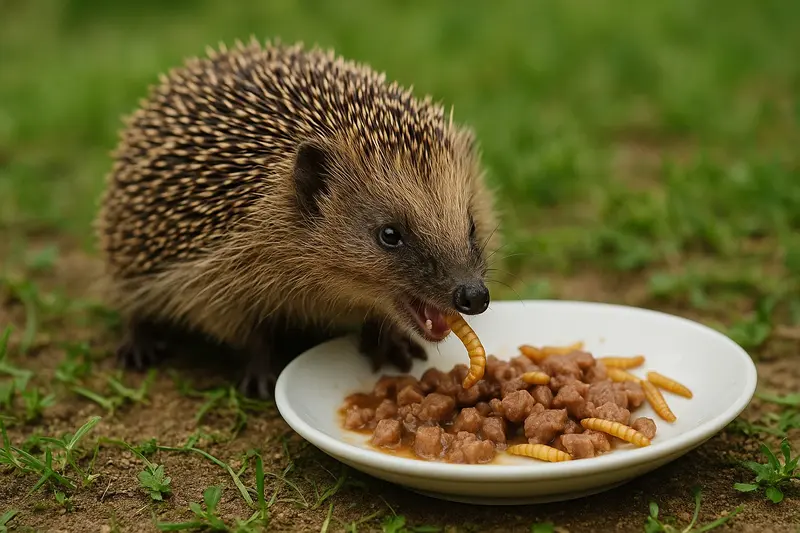Hedgehogs are small, spiny mammals known for their distinctive appearance and nocturnal lifestyle. While they are found in the wild across Europe, Asia, and Africa, hedgehogs are also increasingly popular as pets. But whether wild or domestic, a hedgehog's diet is key to its health, behavior, and lifespan. As an animal expert, this article explores in depth what hedgehogs eat, their nutritional needs, and how to feed them properly.

Hedgehogs are omnivores, but they primarily consume insects and other invertebrates.
Common prey includes beetles, caterpillars, earthworms, snails, ants, and crickets.
Their acute sense of smell and hearing helps them hunt effectively in the dark.
They eat fallen fruits like apples and berries.
They may also nibble on soft greens or mushrooms.
When available, hedgehogs may consume:
Spring/Summer: Insects are abundant, making up the bulk of the diet.
Autumn: More fruit and fat-rich foods are eaten to prepare for hibernation.
Winter: In colder climates, hedgehogs hibernate and cease feeding altogether.
Forest edges, grasslands, and farmlands offer rich dietary variety.
Urban hedgehogs may scavenge pet food or kitchen scraps.
Specially formulated with 20%–30% protein
Offers balanced daily nutrition and convenience
Mealworms, crickets, and earthworms are excellent protein sources
Rotate insect types to avoid nutritional imbalances
Safe options: apples, bananas, blueberries, carrots, broccoli
Avoid toxic items like grapes, onions, avocado
Boiled chicken or cooked egg whites can be occasional treats
Never feed fried, salty, or seasoned foods
Use a stable, shallow dish
Avoid bottle-type drinkers which may restrict intake
Hedgehogs are prone to weight gain
Total daily food intake should be 5%–10% of body weight
Ideal combo: commercial food + insects + small portions of fruits/vegetables
Avoid overly repetitive diets that lead to deficiencies
Introduce new foods gradually and observe reactions
Avoid cat/dog food (excessive sodium), dairy (lactose intolerance)
Feed high-protein wet food or specially formulated baby hedgehog kibble
Ensure consistent hydration and warmth
Require high-protein, higher-fat diets for fetal growth and milk production
Increase insect protein proportion
May develop dental issues—offer soaked or soft food
Supplement with vitamins and calcium
Though small in size, hedgehogs have complex dietary needs. Understanding their natural diet and adapting it to a domestic setting is crucial for their well-being.
Combining commercial hedgehog food with insects and limited fresh produce, while avoiding harmful items and monitoring weight, is the foundation of responsible hedgehog care. Whether wild or pet, feeding them right is the first step toward ensuring they lead long, healthy, and happy lives.
animal tags:
We created this article in conjunction with AI technology, then made sure it was fact-checked and edited by a Animals Top editor.